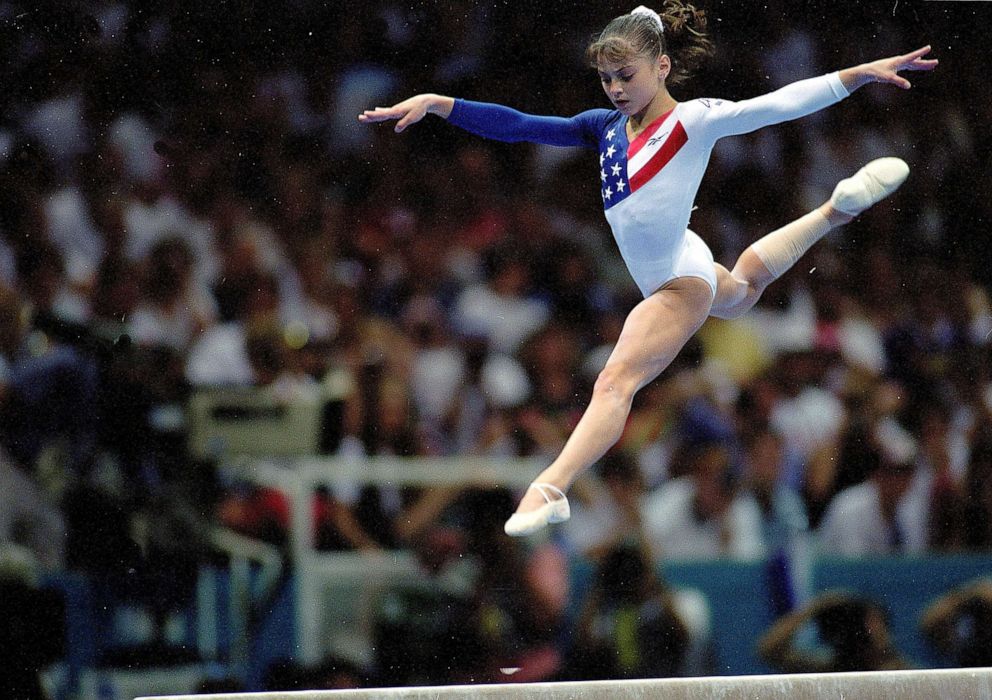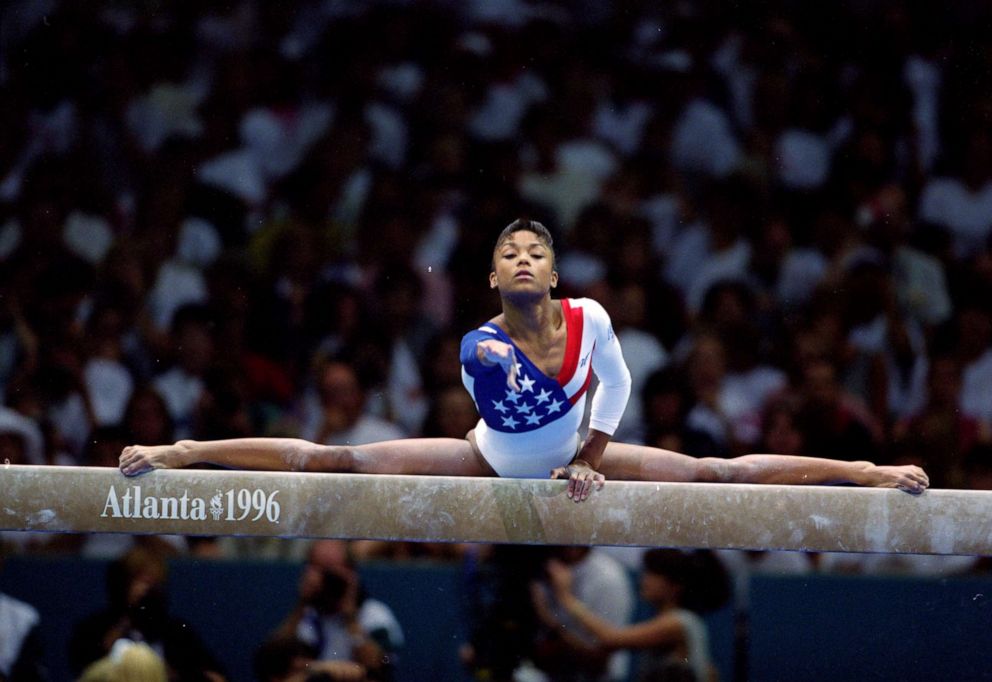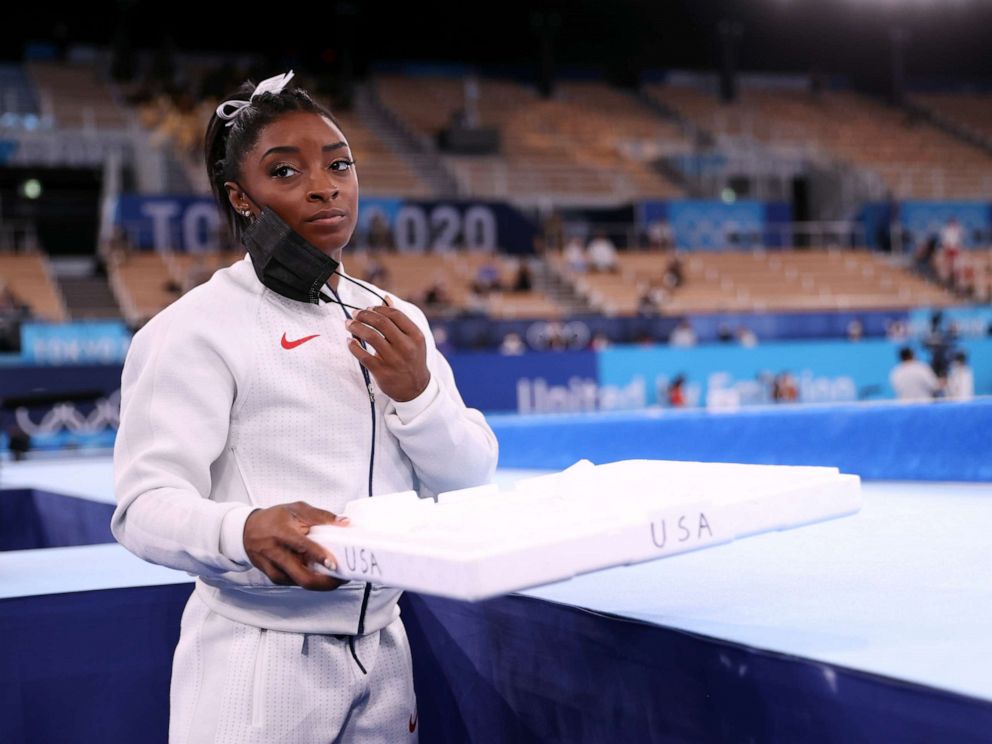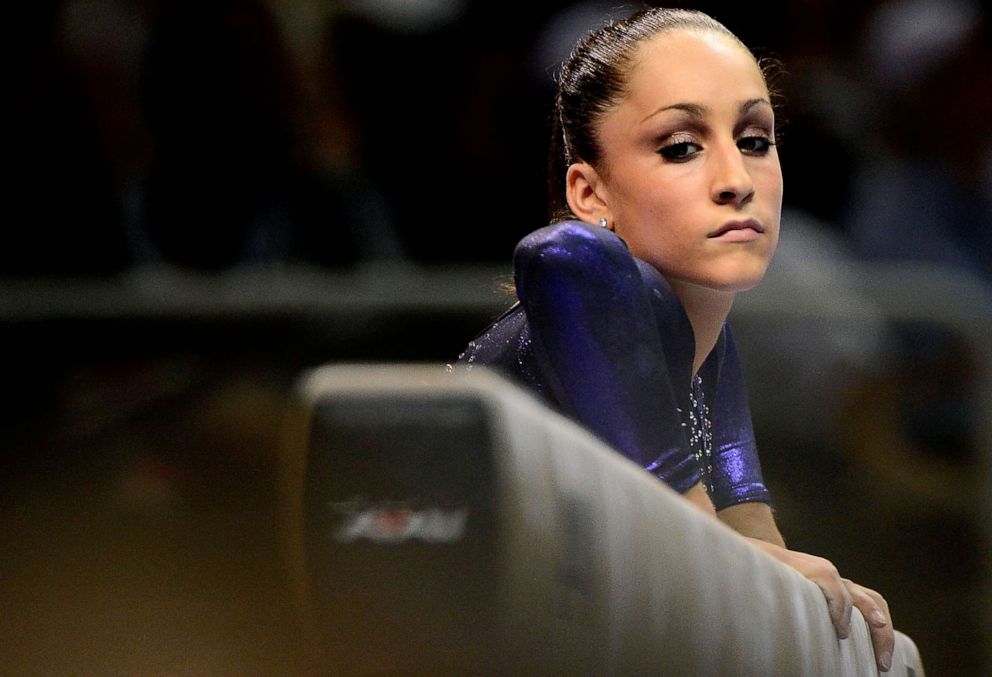Former Olympians react to Simone Biles having the decision to withdraw
"I never remember feeling like I ever got to make those decisions."
As Simone Biles' decision to withdraw from competition at the Olympics sent shockwaves around the world, one facet in particular stood out to former Olympic gymnasts: that she had the power to make that decision for herself.
"I never remember feeling like I ever got to make those decisions, even if I had wanted to," 2012 U.S. Olympian Jordyn Wieber told ABC News.
When she was growing up in elite gymnastics and going through the USA Gymnastics system, Wieber said, it was a culture where "the gymnasts don't have the voice, it's up to the coaches. And I sometimes describe it as we're just kind of like robots that do what we're told."
Biles' ability to make her own decision to withdraw is representative to many of a culture that is slowly but surely changing, especially after the reckoning the sport has faced for abusive practices in the five years since the last Olympics.
This is the first Olympics since USA Gymnastics was torn up over the public revelation of team doctor Larry Nassar's sexual abuse of scores of young athletes -- and questions remain over who knew what in the organization, and when. Since then, a handful of gymnastics coaches have been dropped, suspended and charged with various types of abuse.

Also since then, after gymnasts' pressure, USAG closed the infamous Karolyi ranch, a training facility where many gymnasts say they were abused by Nassar. This is the first Olympics in three decades without the influence of Bela or Martha Karolyi, who arguably developed the U.S. program to its recent dominance but did it with a fierce strictness many gymnasts have condemned. They have also been involved in lawsuits alleging their complicity in Nassar's abuse. They have always maintained their innocence.
"(Biles') decision demonstrates that we have a say in our own health—'a say' I NEVER felt I had as an Olympian," 1996 U.S. Olympian Dominique Moceanu tweeted Wednesday morning, recounting how at 14 she competed in the Olympic floor final minutes after falling on her head on beam.
Dominique Dawes told "Good Morning America" she had actually quit during the 2000 Olympic trials, saying, "I was done after prelims because it was too much on me emotionally. However, I was not able to make that decision. It was very much a controlled atmosphere."
Dawes went on to compete in the 2000 Olympics, her third.

Rachael Denhollander, a former gymnast and the first to publicly accuse Nassar of abuse, wrote in a series of tweets that Biles' decision was an example of "the change we've worked so hard for" after "gymnasts were raised in a system that not only didn't care about the damage to their bodies and minds but that twisted reality for them."
"Hopefully," Wieber said, "we're shifting away from the culture of prioritizing medals and money and the success of the athletes over the health of the athlete," which is something she's been working on herself as head coach for the University of Arkansas. She said she sees Biles as a "pioneer" and that makes her "really proud."
Moceanu, who won gold as part of the U.S. team in Atlanta, told ABC News in a written comment that Biles was "finding new ways to be heroic," saying she was "actually very proud of Simone."

"What she did was actually very brave and is a positive sign for the future of the sport," Moceanu wrote.
Biles has said she remained in the sport in part to be a leader and continue to push to change the culture.
Nastia Liukin, who won gold in the individual all-around for the U.S. at the 2008 Olympics, wrote on Instagram about Biles, "Thank you for creating a safer space for current and future athletes to unequivocally be themselves."
"I think gymnastics has had no choice over the past couple of years than to change," said Wieber, who won team Olympic gold in 2012. "And a lot of coaches are being pushed to look at, you know, what their own coaching style is and look at how it is affecting their athletes long term and make some adjustments."

But there's still a ways to go both culturally and in examining what USAG did or didn't do about abuse by Nassar and others, added Wieber, who was abused by Nassar and coached by John Geddert, who killed himself earlier this year after being charged with human trafficking and sexual assault.
Noting that no one knows what Biles, who was also abused by Nassar, is going through at the Olympics but herself, Wieber said of competing for USAG, "I can take some guesses and imagine that it's probably difficult to represent an organization like USA Gymnastics for her, an organization that has failed her so many times and failed a lot of us."
She continued, "I'm just making assumptions here, but I can imagine that it, it adds to the weight of what she carries with her every day of having to represent that organization."
For more Olympics coverage, click here.




